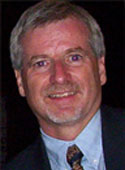By Ted Bruce
The health care establishment occasionally shows glimmers of awareness that the greatest contributors to health are social determinants. We even see the Canadian Medical Association speaking out about poverty in its report What Makes Us Sick.
But we still have a long way to go in debunking the notion that health is all about personal choices and genes. A good example is the comment made by Nova Scotia’s Health Minister who apparently even suggested that people should demonstrate healthy lifestyles before they can access health care. Fortunately these types of uninformed statements are being challenged as was done in this case by a leading anti-poverty physician Dr. Ryan Meili.
It is discouraging that a Health Minister can be so uninformed but it seems all too common that ideology trumps science in the discourse on health. Nonetheless, the message about the importance of addressing social determinants like poverty is slowly taking hold in the medical community. But it requires challenging those uninformed statements every time we hear them as was done by Dr. Meili.
Public health understands this issue and it is ever more important for each of us to challenge statements that will take us down the wrong path to improving the health of the population and reducing health inequities. We can’t be shy about the importance of creating a more equitable society as the path to better health.
Further reading:
Don’t lecture on lifestyles; level social playing field | Dr. Ryan Mieli | The Chronicle Herald February 28 2014
Healthcare in Canada: What Makes us Sick | Canadian Medical Association Town Hall Report | June 2013
Check out:
Upstream: http://www.thinkupstream.net/
Dr. Ryan Meili is the National Director of Upstream. The organization works with the growing body of evidence on these social determinants of health and uses that knowledge to guide recommendations for change.



